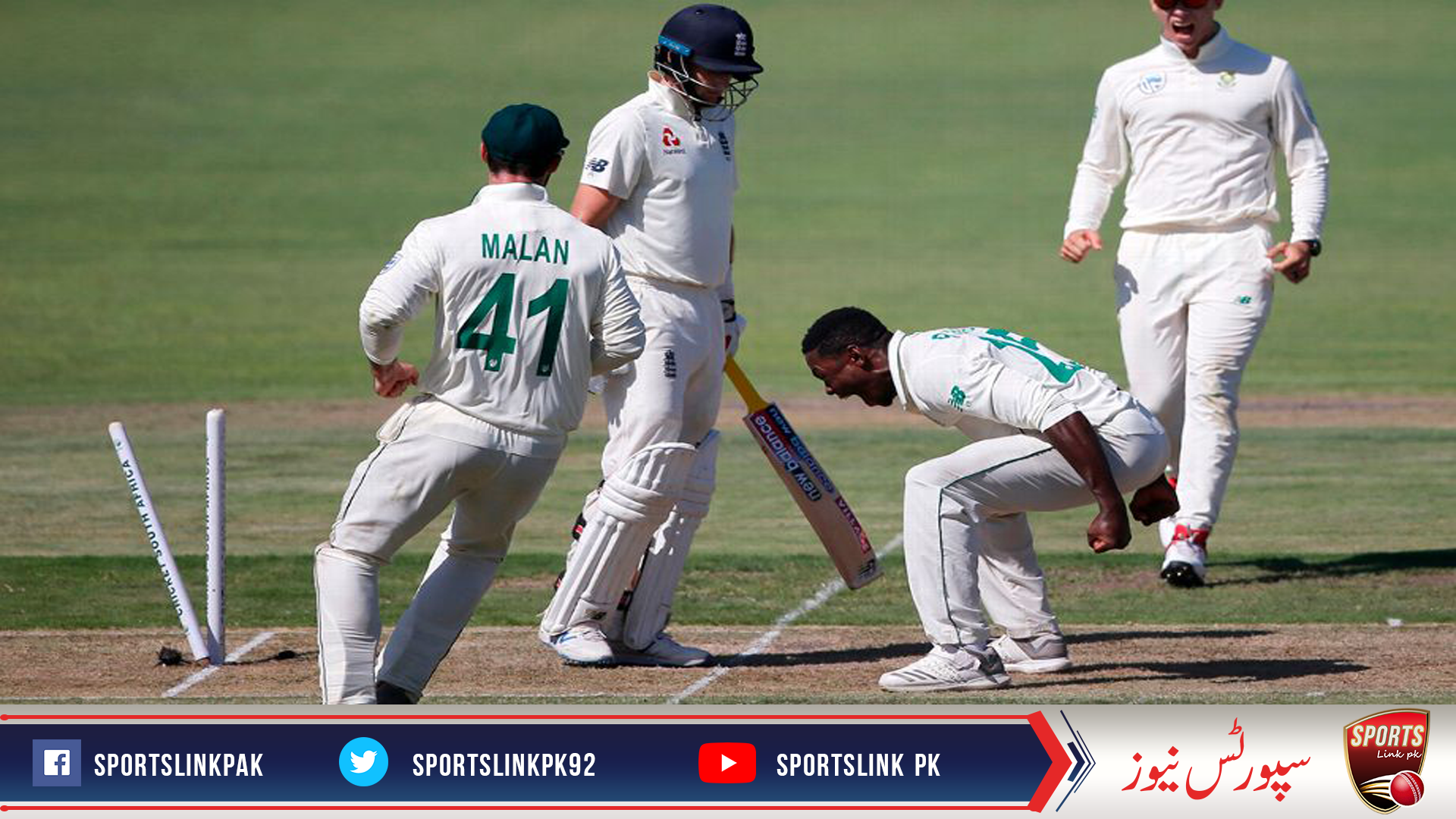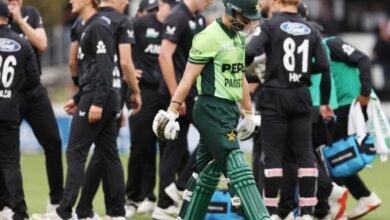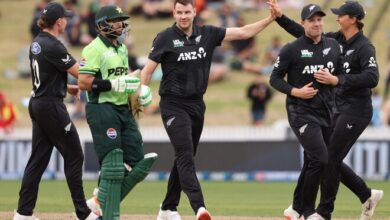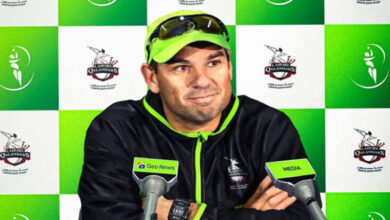Kagiso Rabada ban for one test


Kagiso Rabada will miss the Johannesburg Test after being sanctioned for his celebration following the dismissal of Joe Root on the first day of the Port Elizabeth Test.
Rabada was found guilty of a level one offence. He was fined 15 percent of his match fee and earned one demerit point, taking his total number of active points to four. He has accumulated eight in the course of his career, but four of those have now elapsed.
Rabada was found to have breached article 2.5 of the ICC code of conduct for “using language, actions or gestures which disparage or which could provoke an aggressive reaction from a batter upon his/her dismissal during an International Match”.
Rabada admitted the offence after the day’s play and accepted the sanction proposed by Andy Pycroft, the match referee. As such, there was no need for a formal hearing.
Rabada was particularly animated when he beat Root for pace and bowled him in the evening session on day one. In his follow-through, Rabada advanced close to Root, who was walking off, and screamed at him and the stumps. Rabada was quickly swamped by team-mates Rassie van der Dussen and Pieter Malan before the rest of the team surrounded him.
After play, South Africa’s bowling coach Charl Langeveldt said he had asked Rabada to “control your aggression”, because he is “always looking for a scrap”.
The charge was levelled by on-field umpires Rod Tucker and Bruce Oxenford and third umpire Joel Wilson, as well as fourth umpire Allahudien Paleker. Level 1 breaches carry a minimum penalty of an official reprimand, a maximum penalty of 50 per cent of a player’s match fee, and one or two demerit points.
All three of the incidents which contributed to Rabada’s ban took place at St George’s Park. In February 2018, he was sanctioned for using provocative language in sending off Shikhar Dhawan in an ODI and a month later, had two incidents in the same Test against Australia which almost saw him banned for the rest of the series. He screamed into David Warner’s face and then brushed shoulders with Steve Smith, an act which was initially deemed a Level 2 offence.
South Africa hired a top advocate, Dali Mpofu, to appeal that sanction and were successful. The Smith incident was downgraded to Level 1 which put Rabada on the brink of a ban but allowed him to keep playing. At the time, Rabada said he recognised that his aggressive behaviour “needs to stop,” because he was “letting the team down.”
In a later interview with ESPNcricinfo, Rabada explained that his “outbursts of emotion” are just part of the DNA of a bowler and sometimes can’t be helped. “Unfortunately we are playing in an era where those things are being looked at now and you have to watch yourself. You have to think a bit more about what you do.”
However, it appears Rabada is still struggling to keep his feelings in check and it has come at a hefty cost. Rabada is the leading wicket-taker in the series and his non-availability for the Wanderers puts South Africa in a quandary ahead of what will be a decisive fixture.
Not only will they be missing their premier strike bowler – for whom there is no easy replacement – but they will also be without the only black African player in the current XI, which will set them further back from their transformation target.
South Africa are required to field a minimum of six players of colour, of which at least two must be black African, on average over the course of a season, which means they do not have to meet the target in every match. However, they have failed to meet the requirement in all of the three Tests they’ve played so far, with only four players of colour at both Centurion and Newlands and five at St George’s Park. Rabada has been the only black African player in all three Tests.
That may remain the case at the Wanderers, where Temba Bavuma, who scored a career-best 180 for his domestic franchise this week, has made a strong case for a recall.
However, Bavuma will have to come in as a replacement for a batsman, or as an addition to the line-up and South Africa will still need another bowler to carry Rabada’s load.
They have three options in the 16-man squad: allrounders Dwaine Pretorius and Andile Phehlukwayo and left-arm seamer Beuran Hendricks, who could make his debut. The only other candidate who comes to mind is Lungi Ngidi, who has not played since the Mzansi Super League in December, where he picked up a hamstring injury.
Ngidi is currently at the High Performance Centre attending a strength and conditioning camp for players who were identified to have fitness concerns, and includes those who are likely to be part of the limited-overs’ squads such as Jon-Jon Smuts, Sisanda Magala and Tabraiz Shamsi.
The Johannesburg Test will also be Vernon Philander’s final match, after he announced his retirement at the start of the series.




